Latin America
Related: About this forumAmbassador Who Helped Stop a Coup in Chile
Everyone knows how Nixon and Kissinger paved Pinochet’s path to power. The story of Harry Barnes, who played a crucial role in the Chilean dictator’s exit, is much less well known.
October 16/23, 2023, Issue
PETER KORNBLUH
The recent 50th anniversary of the military coup in Chile brought renewed international attention to the many villains of the US intervention to overthrow Chile’s constitutional government—chief among them Henry Kissinger, Richard Nixon, and CIA director Richard Helms. Their roles in undermining the presidency of the democratically elected Socialist, Salvador Allende, and then assisting the consolidation of the ruthless regime led by Gen. Augusto Pinochet, remains one of the most renowned cases of official criminality in the annals of US foreign policy.
As the anniversary of the September 11, 1973, coup passed last month, the Biden administration faced a dilemma: how to acknowledge this sordid history without actually atoning, let alone calling more public and political attention to US involvement in Chile’s 9/11. In a small gesture of declassification diplomacy, the administration finally declassified two 50-year-old documents from a long list of still-secret records requested by the Chilean government; US Ambassador Bernadette Meehan quietly attended at least one 50th anniversary commemoration, and Biden dispatched his special emissary on Latin America, former Senator Chris Dodd, to attend the special ceremony on the actual anniversary in front of La Moneda palace. On September 11, a State Department spokesperson released a well-crafted statement citing “an opportunity to reflect on this break in Chile’s democratic order and the suffering that it caused”—while avoiding any reflection on the US role in aiding and abetting those events half a century ago. “This commemoration is also an opportunity for us to reflect on Chile’s courageous return to democracy,” the statement read, shifting the focus away from the beginning of the dictatorship to its ending, after Pinochet lost an October 5, 1988, plebiscite intended to legitimize the continuation of his bloody regime.
To reinforce that point and draw attention to the far more positive history of the US role in the dramatic events of October 1988, this week the US Embassy in Santiago held a special ceremony to honor Harry G. Barnes Jr., who served as US ambassador during the final years of the dictatorship. “The Chief of Mission’s residence will be named ‘The Barnes House,’ according to a US Embassy press advisory, “to recognize Ambassador Barnes’ support of and solidarity with the Chilean people who sought to defend human rights and restore democracy to their country via peaceful and democratic means.”
The event was pegged to the 35th anniversary of the October 1988 plebiscite that marked the beginning of the end of the Pinochet regime. But it will be remembered as the one substantive commemorative ceremony organized by the US government around the 50th anniversary of the military coup itself, refocusing on a time when the United States supported the forces of democracy rather than the forces of dictatorship.
More:
https://www.thenation.com/article/world/harry-barnes-ambassador-pinochet-chile/
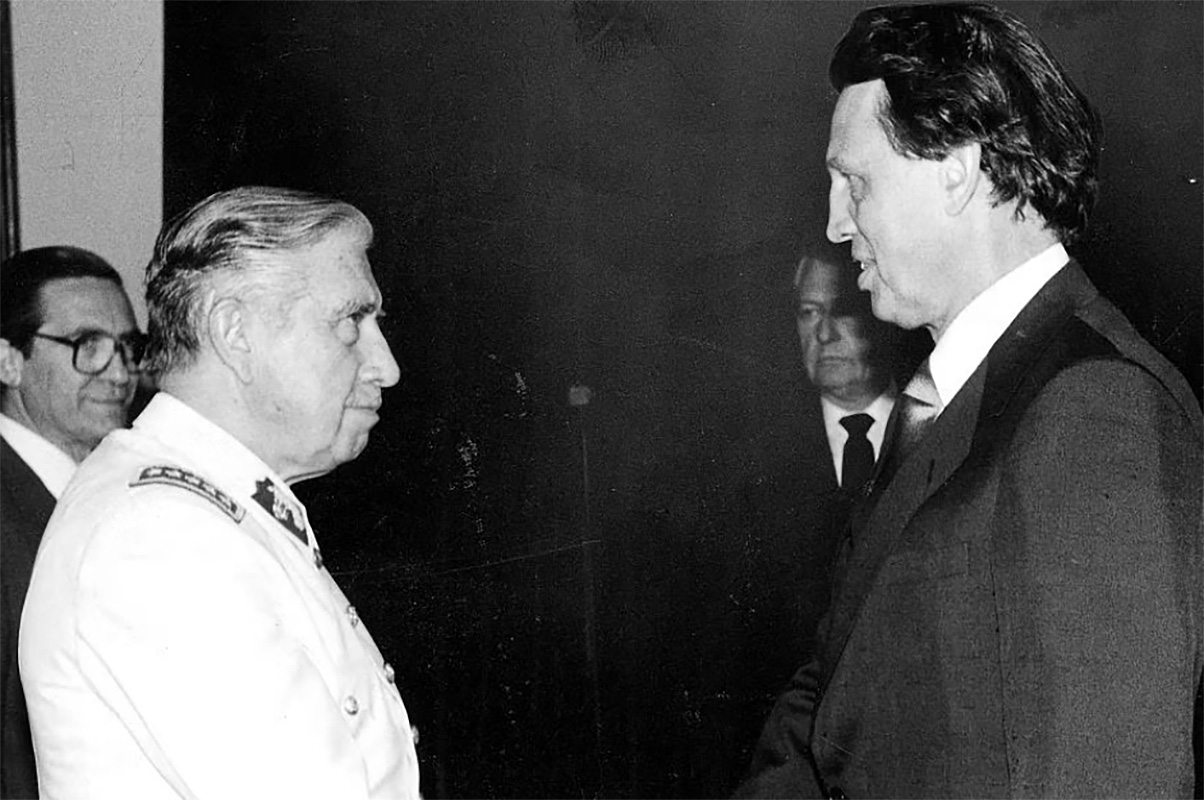
Ambassador Barnes on the right, vicious, sadistic, greedy bloodthirsty Nixon puppet Augusto Pinochet, left.

~ ~ ~
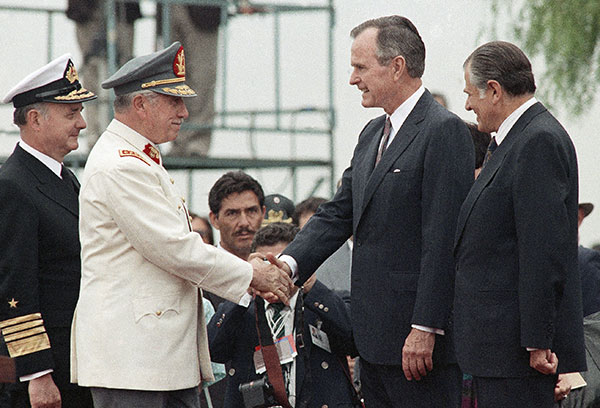
DAMN! First time to see this photo:
American Crime Case #87: George H. W. Bush shakes hands with former Chilean dictator Augusto Pinochet, the military dictator who took power following the CIA-orchestrated coup that overthrew and killed President Salvador Allende in 1973. December 6, 1990, Santiago, Chile. (Photo: AP)
Judi Lynn
(164,067 posts)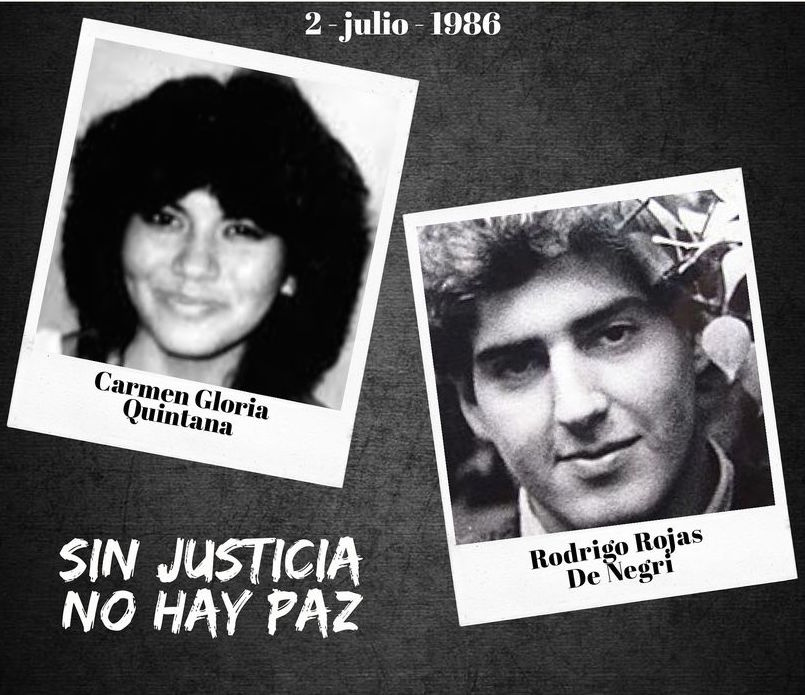
Washington D.C., July 31, 2015 – General Augusto Pinochet refused to accept a police report identifying his own military as responsible for burning two teenage protesters alive in July 1986, according to declassified U.S. documents posted today by the National Security Archive. Pinochet’s action initiated a high-level cover-up of the infamous human rights atrocity known as the case of “Los Quemados”—the burned ones—which killed 19-year old Rodrigo Rojas de Negri and severely disfigured 18-year old Carmen Gloria Quintana.
The cover-up, which lasted almost three decades, included kidnapping and intimidation of witnesses and pressure on Chilean judges and lawyers, according to top secret White House, CIA and Defense Department records.
Yesterday, a Chilean judge ordered the arrest of an Army officer and four members of his patrol, in addition to seven others detained last week, for dousing Rojas and Quintana with a flammable liquid, setting them on fire and dumping them in a ditch to die, following a street protest against military rule on July 2, 1986. Both initially survived; but Rojas, sequestered by the military in a clinic with inadequate facilities, died from burns over 60 percent of his body four days later.
Only five days after Rojas died, according to a detailed State Department cable, General Rodolfo Stange, chief of the Chilean police and also a member of Pinochet’s ruling junta, presented him with an investigative report identifying the army units responsible for the atrocity. “President Pinochet told General Stange that he did not believe the report, and he refused to receive the report,” according to the declassified cable.
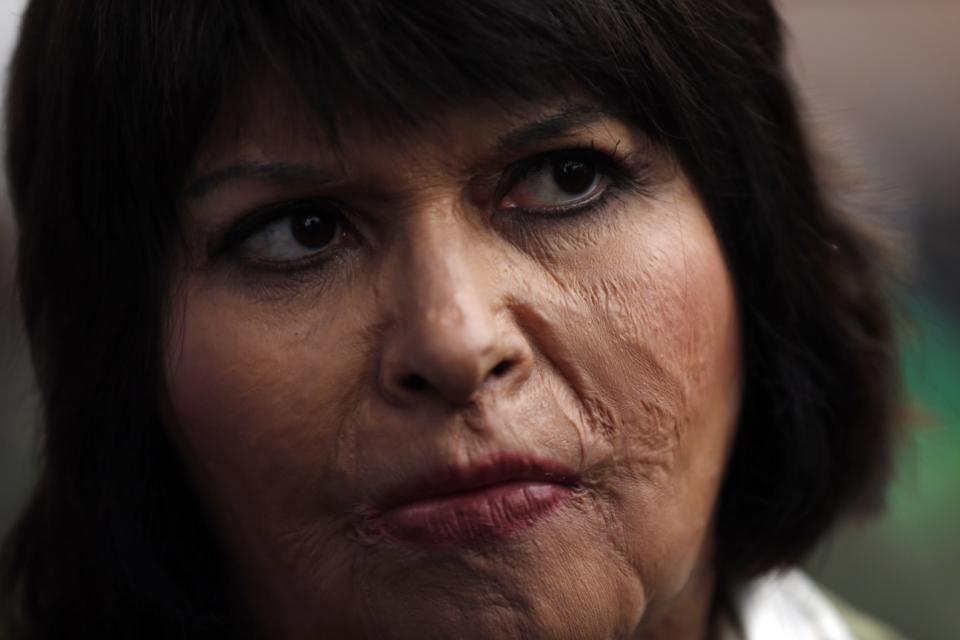
Carmen Gloria Quintana, burned by the military in 1986
Stange subsequently provided the report to one of Pinochet’s deputies, Army vice-commander Santiago Sinclair, who promised an investigation “within 48 hours.” Instead of acting on the report, however, Sinclair oversaw intense efforts to silence witnesses and bury evidence, according to a soldier who recently broke his years of silence..
“One eyewitness was briefly kidnapped, blindfolded, and threatened if he did not change his testimony,” the U.S. Defense Intelligence Agency reported in an intelligence assessment classified TOP SECRET RUFF UMBRA. “Some members of the government will quite likely continue to intimidate the witnesses in order to persuade them to change their testimony, thereby clearing the military.” According to a heavily censored CIA intelligence report, titled “Government of Chile Pressure to Drop Investigation and Prosecution of Rojas Case,” regime officials intimidated judges and lawyers and intervened to stall legal efforts in the courts to bring those responsible to justice.
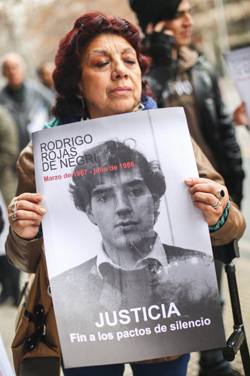
Rodrigo Rojas's mother, Veronica
de Negri, at a recent tribute to her
son in Santiago, Chile
The case of Los Quemados received significant attention in the United States because Rojas was a resident of Washington D.C., where he lived with his exiled mother, Veronica de Negri. President Ronald Reagan received a secret briefing paper on the atrocity, which stated that Chile’s own intelligence service “has fingered Army personnel as clearly involved.” The murder of Rojas “drove the final wedge between Washington and the Pinochet regime,” according to The Pinochet File, written by National Security Archive analyst Peter Kornbluh, and contributed to Reagan’s decision to withdraw support for the regime and press for a return to civilian rule.
According to Kornbluh, who obtained the Rojas documents for his book, the U.S. records could bolster the testimony of witnesses in Chile and provide evidence in the upcoming prosecution. “Carmen Quintana and Rodrigo Rojas, who I watched grow up in Washington, deserve legal and historical justice,” he noted. “The declassified U.S. records can advance both international memory of the victims and, after so many years, legal accountability for the atrocity committed against them.”
More:
https://nsarchive2.gwu.edu/NSAEBB/NSAEBB523-Los-Quemados-Chiles-Pinochet-Covered-up-Human-Rights-Atrocity/
Judi Lynn
(164,067 posts)Woman set ablaze during a 1986 protest has become a symbol of atrocities and impunity under the country’s dictatorship.
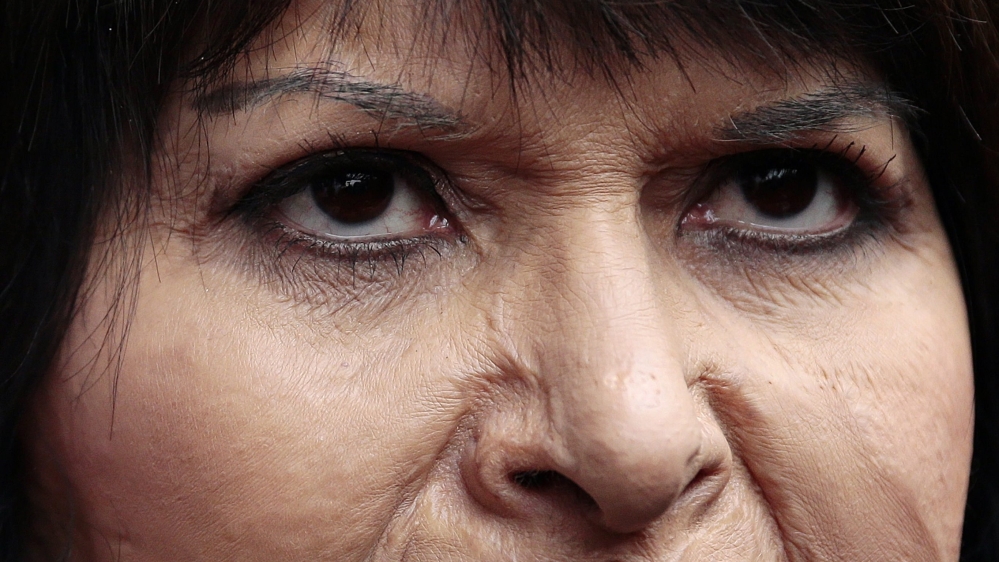
By Lucia Newman
Published On 30 Jul 2015
30 Jul 2015
Santiago, Chile – Carmen Gloria Quintana has had more than 50 reconstruction and plastic surgery operations, but they have not been enough to turn the clock back.
“The scars on my face and burn marks all over my body are visible proof of the atrocities I suffered, but there are many thousands more who are suffering,” she says.
Quintana is the survivor of one of the most horrendous human rights violations committed during Chile’s 17-year military dictatorship. Thousands of others were arrested and never found again.
But this week, it is Quintana’s story that has unleashed a national outcry about a so-called “pact of silence” within the army to cover up its crimes.
Quintana was an 18-year-old university student on July 2, 1986, when she and Rodrigo Rojas, a 19-year-old photographer, were chased down by three military patrols during a protest in Santiago. First they were beaten. Then an officer doused them with petrol and set them ablaze. Afterwards, they were tossed onto a truck, their bodies dumped into a ditch 20km away and left to die. But miraculously they were found and taken to hospital, where after agonising for four days, Rojas died. His last words were: “The military burned me alive.”
Although disfigured from burns to 67 percent of her body, Quintana survived to denounce the crime, becoming a symbol not just of the Pinochet dictatorship’s atrocities, but also of impunity.
Scores of witnesses were threatened, imprisoned and in at least one case forced into exile. Eventually one officer was found guilty of “negligence” and served a few months in prison.
Conscript’s testimony
Twenty-nine years later, the case has come back to haunt Chile’s Armed Forces and the civilians who allegedly helped cover up the crime. Fernando Guzman, a former conscript who belonged to one of the three patrols, has come forward and identified the servicemen and officers involved in the attack. He has also revealed what human rights advocates have long alleged.
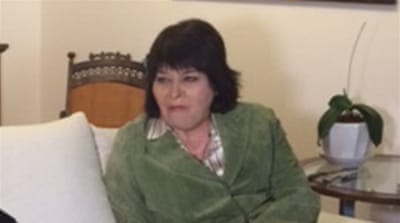
Quintana is now a psychologist living in Canada
“There has been a pact of silence in the army. I was paid by the military, but I had to keep my mouth shut,” he says. “We were drilled and rehearsed by two well-known civilian lawyers on what to say to investigators. We were constantly reminded that we had to take care of our family.”
More:
https://www.aljazeera.com/features/2015/7/30/pinochet-era-crime-comes-back-to-haunt-chile
Judi Lynn
(164,067 posts)- click for image -
https://tinyurl.com/5autepbv
Rodrigo Rojas de Negri
- click for image -
https://tinyurl.com/5n8m497z
Carmen Gloria Quintana was left disfigured after soldiers doused her and Rodrigo Rojas with petrol and set them on fire. Photograph: Gregg Newton / Reuters/Reuters
~ ~ ~
By Steve Hendrix
July 26, 2015 at 3:43 p.m. EDT
- click for image -
https://tinyurl.com/3n4vftk6
Veronica DeNegri, mother of photographer Rodrigo Rojas de Negri, left, with Alicia Lira, president of the Association of Relatives of Political Prisoners Executed and human rights lawyer Francisco Ugas, leave court in Santiago, on Friday. (Claudio Reyes/AFP/Getty Images)
Veronica De Negri waited almost three decades for the news she received last week at her Washington-area home: Officials in Chile were preparing to arrest the men who allegedly burned her son to death during a protest march in Santiago in 1986.
Within hours, she was headed back to her native country, arriving a day before seven former members of the Chilean military were taken into custody and charged in connection with her son’s killing.
. . .
The killing of 19-year-old Rodrigo Rojas De Negri — and his mother’s ceaseless campaign to hold his killers accountable — were defining events in Washington’s tight-knit community of Chilean exiles and human rights activists. “When she spoke, people paid attention,” said Joe Eldridge, the campus chaplain at American University and longtime friend of De Negri who was a resident of Chile during the 1973 coup that brought Pinochet to power. “It affected all of us, but nobody suffered as much as Veronica.”
“Soldiers would beat him with their gun butts. They would make him lie face down on the sidewalk. Then, witnesses say, a young lieutenant would drench him with gasoline, light him on fire and watch.”
Remnick wrote that “more than 5,000 people attended Rodrigo’s funeral. Mourners came with flowers, candles and signs, many of them seeing this death as an emblem of what Chile had become — a state under siege with the highest percentage of political exiles in the world.”
. . .
On Tuesday, Carroza charged six former officers and soldiers with killing Rodrigo Rojas and with the attempted homicide of 18-year-old Carmen Quintana, a protester who was also burned but survived with disfiguring scars. A seventh soldier was charged as an accomplice.
De Negri — who plans to keep advocating on behalf of political prisoners in Chile and against the pension system that pays corrupt former members of the military — said she is encouraged by the arrests in her son’s case. But in Chile, she knows that justice is never assured.
“They could replace the judge,” she said. “They have done it before.”
More:
https://www.washingtonpost.com/local/a-mothers-29-year-quest-for-justice/2015/07/26/9a03d432-331e-11e5-8353-1215475949f4_story.html
Or, with no subscription:
https://tinyurl.com/47s7dndd
